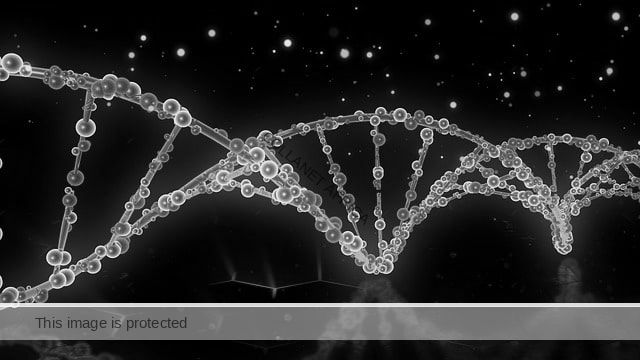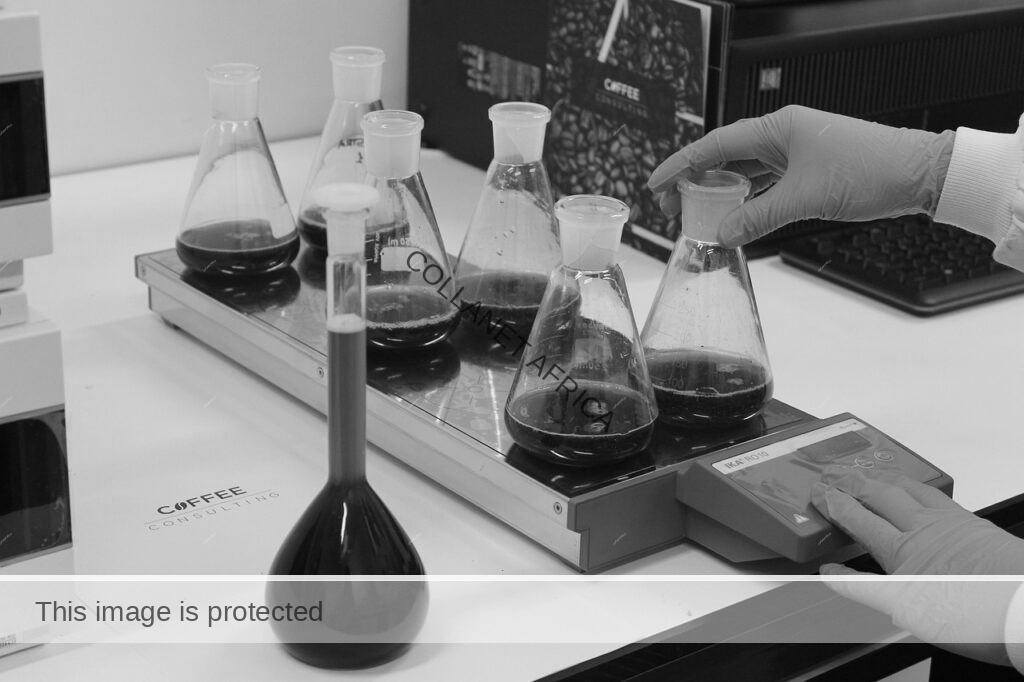
420+ Biochemistry Research Topics for College Students in Kenya
Biochemistry is a branch of science that investigates the chemical processes that occur in living organisms. It is a hybrid discipline, combining elements of biology and chemistry. By understanding the chemical processes that occur within cells, biochemists can develop new treatments for diseases, design new crops and develop new industrial processes.
The scope of biochemistry is vast, encompassing all aspects of the chemistry of living organisms. Biochemists use a variety of techniques to study the chemical processes that occur in cells. These techniques include spectroscopy, chromatography, and microscopy.
Biochemistry is a fascinating field of study that is constantly evolving. New techniques and technologies are constantly being developed that allow us to better understand the inner workings of cells. The future of biochemistry is sure to be exciting as we continue to unravel the mysteries of the cell.
This list contains 420+ biochemistry research topics that you can use right away or modify to come up with your own unique academic project topic.
Interesting Biochemistry Research Topics for College Students in Kenya
- Contribution of biochemistry to innovative information and technological revolution
- The role of biochemistry in determining policies and legal standards: A case study of Covid19
- What is the impact of fast increment in childhood age?
- Explain fungi synthesis and how it is produced.
- What is microbial itaconic acid’s part in fungi synthesis?
- Do in-depth research on microbial disease evolution.
- The different types of carbohydrates and their importance
- Do a Phytochemical analysis of selected tomato products.
- What are the phytochemical and anti-inflammatory properties of methanol extract?
- What is the oxidative stress status of rats fed on oil bean deed meal?
- Process of photosynthesis in GMO crops and their effect on world hunger and population problems.
- Reactions and basic structure of esters and phosphates and their synthesis required from alcohols.
- The impact of lattice light-sheet microscopy in the advancement of biochemistry.
- Use of selective plane illumination microscopy in biochemistry research.
- Why are chromatin domains called units of chromosome organization and their importance in biochemistry?
- The different types of cell organelles and their functions
- How is microarray technology used to characterize p73 and P63 regulated cancer genes?
- The role of intestinal microbes in human health and disease.
- Liquid type metabolism in mitochondrial and metabolic diseases.
- What is the molecular genetics of cancer?
- Antifungal metabolites and activity of bacillus strain against Aflatoxin-producing Aspergillus spp.
- The chemistry of paracetamol medicine.
- Evaluate the antioxidant potential of African nutmeg.
- Transcriptional regulation of ribosomal protein genes in metazoan cells and yeast.
- How are chemical detergents made?
- Investigate the determinants of biochemical parameters in diabetic and hypertensive pregnant mothers in the hospital.
- Are amyloid diseases like Alzheimer’s disease transmissible?
- What are the various processes of fatty acid catabolism and their effects on the human body?
- Predicting any contacting residues through sequence information
- Control of signaling using frequency modulation
- How do cancer molecular genetics evolve?
- Evaluate protein cooperation and the part of a functioning nucleic acid.
- Do a thorough study of cellular function and its structure.
- Discuss physical biochemistry and its role in modern society.
- How do you determine the PH value of pure water?
- What are the microbial food spoilage disorders and the control?
- The examination of autoimmunity and inflammation.
- Tissue clearing techniques used in optical microscopy
- The importance of ion mobility mass spectrometry in biochemistry
- Quantification of protein in living organisms
- Investigate the health dangers of potassium bromate in bread.
- What are the role expectation and performances of laboratory assistants in secondary schools?
- Investigate the production of high-quality bar soap.
- What is the PH value of borehole water?
- Evaluate protein designs and folding between mice and humans.
- Investigate the membrane biology and transport in an innate immune response.
- What is the major role and structure of protein-membrane?
- Understand protein and peptide structure’s role in membranes.
- What is the composition of water extracts of hibiscus sabdariffa?
- The different stages of the cell cycle
- Research on cancer pathology and relation to biology.
- How vegetarian diet modifies gut biochemistry.
- How is the laboratory diagnosis of viral infections done?
- Provide a short communication on anesthesiology.
- What is arterial cardiovascular disease and its treatment?
- Discuss the development and characterization of chemical compounds in pancreatic, lung, and colon cancer.
- What part do intestinal microbes have in a person’s health and diseases?
- Discuss the characterization of RAS signaling and lipid trafficking.
- Discuss the genomics of diseases.
- Evaluate the chromatin redistribution and control of gene expressions in eukaryotes.
- The impact of nano-drug delivery systems on the modern world.
- Effect of adding oats and whey into low-fat milk on glycemic index.
- Discuss the formation of the microbial biofilm.
- Evaluate the pulmonary fibrosis innovations.
- Discuss the physiotherapy for juvenile idiopathic arthritis.
- The ethical appraisal of human cloning.
- Horticulture and its advanced techniques.
- Why does bleeding occur when children have a fever?
- How the structure of molecules affect metabolic reactions
- Describe the process of speeding up reactions by enzymes
- Discuss how catabolism and anabolism lead to the breaking down of larger molecules
- What are the various mechanisms of reactions that cause pollution?
- What are some of the emerging ethical and legal trends in biochemistry?
- How the study of biochemistry supports our understanding of diseases and health
- Discuss the various ways to manage infections in children.
- What are the major reasons for malnutrition in children in developing countries?
- What are the physicochemical properties of sachet water?
- Investigate the microbial food spoilage disorders and the control.
- What is the impact of modern contamination on public health?
Investigative Biochemistry Research Topics for College Students in Kenya
- Lipid metabolism is metabolic and mitochondrial diseases
- Discuss bone biology and skeletal complications.
- Evaluate the cellar structure and function in the human body.
- Evaluate the importance of functional nucleic acid.
- Discuss the genetic and epigenetic regulatory mechanisms.
- Cancer molecular genetics- Genomics-based approach to association and gene expression studies
- What medicine combinations are used to treat Hepatitis patients?
- How can one strengthen their immunity through eating a balanced diet?
- Investigate how seeds germinate with the right atmospheric conditions.
- What factors necessitate fatty acids beta-oxidation?
- Phytochemical analysis of specific tomato products available in the market for public health safety.
- The oxidative stress status of mice fed on oil bean seed meal and show the same applies to biochemical processes in humans.
- What causes antibiotics to be resistant in the human body?
- How does bitter leaf help in increasing the shelf life of locally brewed sorghum beer?
- What are the physicochemical properties of honey?
- What is the effect of fluoride on drinking water?
- Protein kinase signaling in drug resistance and cancer progression
- A comparison of protein design and folding between mice and humans
- Formation of microbial biofilm: Therapeutics from molecular mechanisms
- Illustrate the biochemical and cellular basis glucose transport of insulin resistance.
- What is the role of the platelet in the body?
- How do the various organs in the body function?
- What do you understand by biochemical toxicology?
- Analyze research advancements that lead to the formulation of the medicine.
- What effect will genome mapping have on society?
- Do athletes use any kind of drugs to be perfect at running?
- Analyzing the Platelet function’s role and dysfunction on wounds coting
- Understanding protein and peptide structure’s role in membranes
- Understanding the function and structure of protein membrane
- Understanding how the function and structure of protein-membrane affects drugs distribution in the body
- How do foods rich in starch differ from those rich in proteins?
- Describe in-depth how enzymes work and their importance.
- Investigating the membrane biology and ion transport role in innate immune response
- The protein’s structural determinants role in human health
- Research of the microbial disease evolution
- Evaluate how enzymes act as a catalyst.
- Explain how scientists make vaccines.
- Why are some diseases more transmissible than others?
- How does population health study influence emerging economies?
- Describe what is contained in raw and cooked walnut.
- How dangerous are the different strains of Hepatitis?
- Analyze antibiotics resistance in animals.
- Analyze honey’s physicochemical properties.
- Describe what is contained in Asprin medicine.
- The major differences between RNA and DNA.
- Describe how babies get both their father’s and mother’s DNA.
- What are the well-known functions of non-enzymatic protein?
- Describe how carbohydrates are digested in the body.
- Evaluate some of the physicochemical processes that occur in living organisms
- Analyze the protein complexes in DNA synthesis.
- What is phosphate’s role in the body?
- Explain how detergents are made – what can happen if different chemicals are used?
- Discuss the conditions that necessitate antibacterial activity of Thymus Vulgaris
- How does gastroenteritis affect children?
- How can one investigate waterborne diseases – how do they get into human/animal bodies?
- Compare metalloproteinase and metalloenzyme.
- Provide an overview of how microorganisms thrive in the soil.
- Describe the biological and NMRS systems.
- How do B cells receptors help in disease prevention and vaccine creation?
- Research on microbial disease evolution.
- What are protein’s structural determinants in human health?
- The study and measures are taken for Hepatitis B prevention.
- Epigenetic and genetic regulatory mechanisms
- What causes destabilization in lysosomes?
- What are the optimum conditions for aqueous and ethanol extracts?
- How Cadmium affects humans and the surrounding environment
- Evaluate the fungal pathogens associated with tomatoes spoilage
- Investigate the process of producing pro-inflammatory eicosanoids
- What is the therapeutic action of anti-inflammatory medicinal plants?
- The impact of herbal preparations on treating skin diseases
- Explain the sugar percentage found in carbohydrates.
- What is the most common blood pressure treatment used in human beings?
- Research into complex biochemical compounds towards DNA mapping.
- Analyze enzymes and their impact on our bodies.
- Why is the study of biochemistry important in the world?
- How can you term protein quantification in the organism?
- Provide an in-depth understanding of physical biochemistry.
- The differences between bacterial and viral infections.
- Describe how proteins help to boost the health of humans.
- Discuss essential and non-essential amino acids.
- What are the RNA functions?
- How does the purification of protein reactions occur?
- The use of microarray technology to characterize P73 and P63 regulated gene in cancer
- Characterizing and developing chemical compounds for targeting lung, pancreatic, and colon cancers
- Intestinal microbes’ role in disease and human health.
- Human health and bacteriophages
- B cells receptors targeting in diseases and vaccines
- What is the function of genome mapping?
Medical & Clinical Biochemistry Research Topics for College Students in Kenya
- The use of protein denaturation inhibition in determining the anti-inflammatory activity in plants.
- Protocols and methods used to measure apolipoprotein levels in serum of animal models
- Excessive milk consumption and its relationship with increased levels of insulin-like growth factor and a possible increase in the risk of cancer.
- Best protocols and measures for freezing MDA-MB436 cells.
- The process of free ion binding by human serum albumin: Explore reaction between serum albumin and ferric chloride.
- Bacteriophages and human health
- Cellular dissection and molecular functions in the latest medications in high blood pressure treatment
- Chemical shift data and information used in predicting protein dihedral angles
- A comparison of the major biochemical studies aspect in the last century
- Analysis of protein complexes in DNA synthesis definition
- Requesting and Interpreting Clinical Biochemistry Tests and Results;
- Fluid distribution (body compartments),
- Molecular genetics analysis in a single causative gene with muscular dystrophy in mind
- Measurement of the level of vitamin D in follicular fluid: Various methods and their significance.
- What are the clinical biochemical features of acute copper sulfate poisoning
- Study of population health and its importance for enhanced health performance in emerging economies
- Fluid Balance (Diagnostic significance)
- Sodium and Potassium Balance,
- Acid-Base Balance & Base Excess (Diagnostic significance)
- Metabolic and Respiratory Acidosis and Alkalosis including Compensatory Mechanisms
- Renal Function (Including Acute and Chronic Renal Failure, Renal Tubular Acidosis),
- Oxygen Transport (Haemoglobin: Structure function relationship: Embryonic, Foetal, Adult)
- Disorders of Calcium and Phosphate Metabolism (Diagnostic significance)
- Enzymes in Clinical Diagnosis
- The profile of antibiotics resistance in Escherichia coli-isolated from healthy domestic animals
- Analysis of bitter leaf extract’s use in extending sorghum beer’s shelf life
- Analysis of honey’s physiochemical properties
- Chemical quality and production assessment of aspirin
- Gastroenteritis study- How it affects children in primary schools
- Gastric, Pancreatic and Intestinal Disorders (Diagnostic significance)
- Liver Function Tests: Neonatal Jaundice, Classification of Jaundice (Diagnostic significance)
- Metabolic Disorders: Carbohydrate (Diabetes Mellitus, Gestational Jaundice), Disorders of Plasma Lipids and Lipoproteins, Hypercholesterolemia
- Disorders of Purine Metabolism (Gout; Diagnostic significance)
- Anaemia, Iron deficiency Anaemia (Diagnostic significance)
- Disorders of Porphyrin Metabolism (Porphyria)
- Thyroid function Tests (Interpretation and Diagnostic significance)
- Disorders of Adrenal Cortex and Medulla Functions (Adreno-cortical failure: Diagnostic tests);
- Hypothalamic and Pituitary Hormones (Diagnostic tests)
- Analyzing the level of alpha-protein in hepatitis patients in accessing its generation to HCC
- A thorough examination of inflammation and autoimmunity
- The analysis of Vitamin C in pineapple and bananas.
- Describe the best methods of extraction of vegetable oil in breadfruit seed.
- What is the benefit of ascorbic acid in the body?
- What are the effects of ethanol leaves and stem extracts?
- Velvet bean coat and seed’s proximate analysis
- Antimicrobial and preliminary phytochemical screening of citrus sinensis coat and seed
- Starch production from cassava and cross-linked derivatives
- Analyze the various types of chronic diseases.
- What is the effect of processing fatty acids?
- Evaluation of thyroid dysfunction in type 2 diabetic patients.
- Analyze the mineral content in coconut water.
- Sex Steroid hormones (Gonadal Dysfunction, Diagnostic tests and interpretation);
- Clinical Toxicology (Diagnostic tests and interpretation)
- Molecular Biology as a tool in Clinical Biochemistry (PCR, ELISA, EIA)
- Endocrinology – Diagnostic Applications,
- Critical Analysis of Research Data
- Evaluate the antimicrobial efficacy of medicinal plants on root canal biofilm.
- Describe how to isolate and identify microorganisms in stream water.
- The latest statistical methods used to study the biological aspects of medicinal maggots like food type, larval density, and their effect on development parameters.
- Exploring B lymphocyte cell line aggregation from a chicken and temperature sensitivity
- Polyphosphate role on the virulence of Erwinia caratovora
- Describe the chronic diseases and their preventive measures.
- Assess infant and youth children feeding practices.
- How do you rate the nutrition status of children in the world?
- Evaluate the thyroid dysfunction in diabetic patients.
- Analyze the phytochemical analysis of some brands of bitters.
- What is the ameliorating role of NPK fertilizer on the toxic effects of sorghum?
- What is the use of ethanol extract?
- What is the effect of frying and boiling on the physicochemical properties of oil?
- Analyze the phytochemical analysis of selected tomato products.
- Analyze chronic diseases and their preventive measures.
Current Research Topics in Biochemistry for College Students in Kenya
- Can human genome mapping help redesign human life before it is born?
- The dynamics of outer membranes in bacteria.
- The best strategies to control the global obesity epidemic.
- Discuss the selenium toxicity and deficiency of humans.
- How does garlic help to relax blood vessels?
- The impact of taking antidepressants.
- Analyze and investigate enzymes that break cocaine into a inoperative substance.
- Analysis of Acute Gastroenteritis (AGE) amongst children.
- Biochemical properties of the Coronavirus.
- Breast cancer: Its detection and screening.
- How can human genome mapping impact society?
- Do athletes who use biomedical products have any unfair advantage over others who don’t?
- How does purification and expression of the reaction of various proteins interacting with different levels on ENTH work?
- How to make good use of natural resources for research?
- Analyze lead poisoning.
- The major roles of the blood composition in living beings.
- What are the major treatments of various inflammation illnesses?
- Provide examples of how biochemistry research has helped in creating new medication
- The effects of HPV vaccines on the human population after widespread use
- Explain biodiesel as an alternate source of energy.
- Evaluate the impact of fossil fuels on the society and environment.
- Evaluate nutrigenomics and influence in the environment.
- What are the variabilities and correlation studies in basil scent leaf?
- The importance of electron microscopy in isolating Viruses and Bacteria.
- Analysis of tissue clearing techniques for optical microscopy.
- What are the best strategies to control the global obesity pandemic?
- Determination of the active components of common artificial sweeteners used as a replacement for sugar
- The use of Biomedical means by athletes to gain unfairness?
- Recent advancements in Biochemistry research for medications catering to new strains of Coronavirus.
- What is the evaluation of the antioxidant potential of nutmeg?
- What is the processing of the nutritional value of sicklepod seeds?
- Evaluate the chronic disease and its preventive measures.
- The effect of different types of organic fertilizers on plant growth.
- Analyze the proximate and physicochemical analysis of fish flour on different fish species.
- Evaluate biodiesel as an alternate source of energy.
- What are the effects of ethanol on the body?
- Research on the qualitative phytochemical analysis of some seeds.
- How are enzymes reactions blocked?
- What are the causes of prostate cancer?
- How do metabolites help to cure diseases?
- The effects of soil erosion in emerging urbanization.
- Determinants for drugs effectiveness.
- Tumor growth and the biological factors that precedes it.
- Risks associated with herbal reparations on treating skin diseases.
- Impact of COVID-19 on the study of biochemistry.
- What makes animals glow in darkness?
- How to evaluate medicines and drugs.
- What are ancestral receptors genes?
- Discuss algae and its impact on the environment.
- How do bacteria make vitamins?
- How can small living cleaners clean toxic chemicals?
- How do genes impact the body structure?
- How can you use computers to reclassify diseases?
- How can snails be used to relieve pain?
- How does studying biochemical compounds help get more information on DNA Mapping?
- How can human genome mapping impact medicine?
- Cardiovascular diseases and biochemical experiments.
- Evaluation of the molecular methods in investigating variations in genes.
- Discuss anesthetics.
- Discuss how certain diseases strengthen over time.
- Discuss medical contact lenses.
- The function of the genes in the body.
Fundamental Biochemistry Research Topics for College Students in Kenya
- The role of enzymes in chemical reactions
- The role of proteins in cell structure and function
- The role of DNA in genetic information
- The role of carbohydrates in cell function
- The role of nitrogen in amino acids
- The role of sulfur in biochemistry
- How to know when fungi are growing in plant roots.
- What happens to marine life when oxygen is scarce?
- How does marine life survive in water?
- How does good cholesterol protect the liver?
- The role of calcium in cell signaling
- Discuss the topology in biology.
- Discuss global warming and its impact on the environment.
- The new approaches that eradicate breast cancer in mice.
- The role of sodium in cell membranes
- The role of chloride in body fluids
- The role of potassium in cell membranes
- The role of zinc in enzymes
- The role of copper in electron transport
- The role of manganese in enzymes
- The role of selenium in enzymes
- The role of molybdenum in enzymes
- What is the tropical forest vulnerability?
- Why do root-linked bacteria prefer native host plants?
- Investigate the reverse optogenetic tool development.
- The role of chromium in enzymes
- The role of iodine in thyroid hormones
- The role of fluoride in dental health
- The role of boron in plant metabolism
- The role of silicon in plant metabolism
- The best treatment to heal harsh muscle and bone loss.
- How orange juice has an effect on the body’s treatment of medicines.
- The major function of sex chromosomes in turtles.
- Provide new insights into immune responses to malaria.
- Why four-legged animals are better than sprinters.
- The role of lipids in cell membranes
- The role of vitamins in human health
- The role of minerals in human nutrition
- What is the potential role of junk DNA sequence in aging cancer?
- Is the father’s gene the major determinant to whether a child becomes a girl or boy?
- The role of phosphorus in cell metabolism
- The role of iron in hemoglobin
- The role of magnesium in enzymes
- How do cattle adapt to the environment?
- How do early social connections influence stress resilience and gene expression?
- The role of water in chemical reactions
- The role of oxygen in cellular respiration
- The role of carbon in organic molecules
Fun-filled Biochemistry Research Topics & Project Ideas for College Students in Kenya
- The biochemical processes used by good bacteria in the human gut to maintain its health.
- The role of biochemical research in helping sustainable food supply.
- Do GMO crops provide a real solution to global food issues and nutrition?
- Provide evidence or arguments about using animal modes of certain diseases to find a cure for human disease.
- What are the biochemical processes related to polymorphism?
- Will human genome mapping help in disease prevention?
- The best cell analysis technique to combat tuberculosis infection.
- The findings were made by scientists in the effort to reduce age-related memory loss in mice.
- Describe how new forces shape genomes.
- Describe the chemistry and biology of collagen.
- Describe cell surface receptor sites.
- Describe cancer pathology.
- Evaluate the different types of cancer and the cells they affect.
- What is the impact of protein interaction in functional nucleic acid?
- Describe the enzymology and structural biology.
- Provide the evidence of the different animal diseases models for scientific value.
- Describe the expression and purification of proteins reactions when interacting with different ENTH levels.
- How will the recent biochemistry research advancements lead to the creation of new medications?
- Exploring the role of enzymes in chemical reactions.
- Investigating the role of proteins in cell signaling.
- Examining the role of carbohydrates in energy storage and metabolism.
- Studying the role of lipids in cell membranes.
- Investigating the role of DNA in genetic information storage and inheritance.
- Examining the role of RNA in protein synthesis.
- Investigating the role of vitamins and minerals in human health.
- Studying the role of water in chemical reactions and metabolism.
- Examining the role of oxygen in cell respiration.
- Investigating the role of carbon dioxide in photosynthesis.
- Exploring the role of enzymes in chemical reactions
- Investigating the role of proteins in cell signaling
- Examining the role of carbohydrates in energy storage and metabolism
- Studying the role of lipids in cell membranes
- Investigating the role of DNA in genetic information storage and inheritance
- Examining the role of RNA in protein synthesis
- Investigating the role of vitamins and minerals in human health
- Studying the role of water in chemical reactions and metabolism
- Examining the role of oxygen in cell respiration
- Investigating the role of carbon dioxide in photosynthesis
- The role of pH in biochemical reactions
- The effect of temperature on biochemical reactions
- How does molecular biology influence modern science?
- What is the major difference between evolution and natural selection?
- The role of DNA in genetic inheritance
- How is it possible for RNA to create crops that can grow 50 % more?
- How does immunity impact the wellbeing of a person and how to strengthen it.
- How can lama nanobodies help in preventing deadly post-transplant infection?
- How can chromosomes be separated in a person?
- Relate between apoptosis and necrosis.
- Provide the difference between DNA and chromosomes?
- What are the types of enzyme regulations?
- The major nutritional facts of the dragon fruit.
- The role of RNA in protein synthesis
- Evaluate muscle proteins and muscle contraction.
- Molecular genetics related to the causative gene behind muscle dystrophy
- How can protein engineering help analyse DNA strands?
- Molecular and cellular functions of current medications used to treat high blood pressure
- Describe membrane structure and function.
- Describe the evolution of biochemistry.
- Evaluate the skeletal complications in human beings.
- The role of vitamins in human health
- The role of minerals in human health
- The role of water in human health
- Describe the branch of immunology in biochemistry.
- Describe the branch id animal biochemistry.
- What is the impact of the branch of enzymology in real life?
- Evaluate plant biochemistry and cell biology.
- What is the main subject in the branch of metabolism and genetics?
- The role of enzymes as catalysts in biochemical reactions
- The role of proteins in cell membranes
- The role of carbohydrates in cell membranes
- What are the major differences between bacteria and viruses?
- What are the differences between epithelial and connective tissues?








Responses